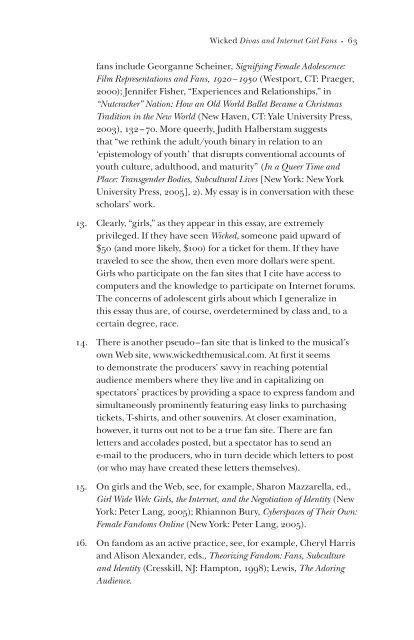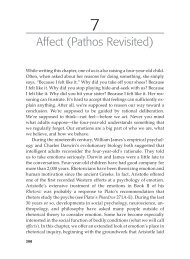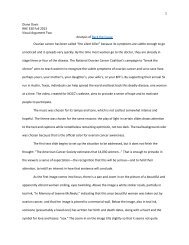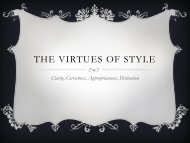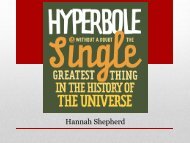(Kristin Chenoweth) and Elphaba - Camera Obscura: Feminism ...
(Kristin Chenoweth) and Elphaba - Camera Obscura: Feminism ...
(Kristin Chenoweth) and Elphaba - Camera Obscura: Feminism ...
- No tags were found...
You also want an ePaper? Increase the reach of your titles
YUMPU automatically turns print PDFs into web optimized ePapers that Google loves.
Wicked Divas <strong>and</strong> Internet Girl Fans • 63<br />
fans include Georganne Scheiner, Signifying Female Adolescence:<br />
Film Representations <strong>and</strong> Fans, 1920 – 1950 (Westport, CT: Praeger,<br />
2000); Jennifer Fisher, “Experiences <strong>and</strong> Relationships,” in<br />
“Nutcracker” Nation: How an Old World Ballet Became a Christmas<br />
Tradition in the New World (New Haven, CT: Yale University Press,<br />
2003), 132 – 70. More queerly, Judith Halberstam suggests<br />
that “we rethink the adult/youth binary in relation to an<br />
‘epistemology of youth’ that disrupts conventional accounts of<br />
youth culture, adulthood, <strong>and</strong> maturity” (In a Queer Time <strong>and</strong><br />
Place: Transgender Bodies, Subcultural Lives [New York: New York<br />
University Press, 2005], 2). My essay is in conversation with these<br />
scholars’ work.<br />
13. Clearly, “girls,” as they appear in this essay, are extremely<br />
privileged. If they have seen Wicked, someone paid upward of<br />
$50 (<strong>and</strong> more likely, $100) for a ticket for them. If they have<br />
traveled to see the show, then even more dollars were spent.<br />
Girls who participate on the fan sites that I cite have access to<br />
computers <strong>and</strong> the knowledge to participate on Internet forums.<br />
The concerns of adolescent girls about which I generalize in<br />
this essay thus are, of course, overdetermined by class <strong>and</strong>, to a<br />
certain degree, race.<br />
14. There is another pseudo – fan site that is linked to the musical’s<br />
own Web site, www.wickedthemusical.com. At first it seems<br />
to demonstrate the producers’ savvy in reaching potential<br />
audience members where they live <strong>and</strong> in capitalizing on<br />
spectators’ practices by providing a space to express f<strong>and</strong>om <strong>and</strong><br />
simultaneously prominently featuring easy links to purchasing<br />
tickets, T-shirts, <strong>and</strong> other souvenirs. At closer examination,<br />
however, it turns out not to be a true fan site. There are fan<br />
letters <strong>and</strong> accolades posted, but a spectator has to send an<br />
e-mail to the producers, who in turn decide which letters to post<br />
(or who may have created these letters themselves).<br />
15. On girls <strong>and</strong> the Web, see, for example, Sharon Mazzarella, ed.,<br />
Girl Wide Web: Girls, the Internet, <strong>and</strong> the Negotiation of Identity (New<br />
York: Peter Lang, 2005); Rhiannon Bury, Cyberspaces of Their Own:<br />
Female F<strong>and</strong>oms Online (New York: Peter Lang, 2005).<br />
16. On f<strong>and</strong>om as an active practice, see, for example, Cheryl Harris<br />
<strong>and</strong> Alison Alex<strong>and</strong>er, eds., Theorizing F<strong>and</strong>om: Fans, Subculture<br />
<strong>and</strong> Identity (Cresskill, NJ: Hampton, 1998); Lewis, The Adoring<br />
Audience.


